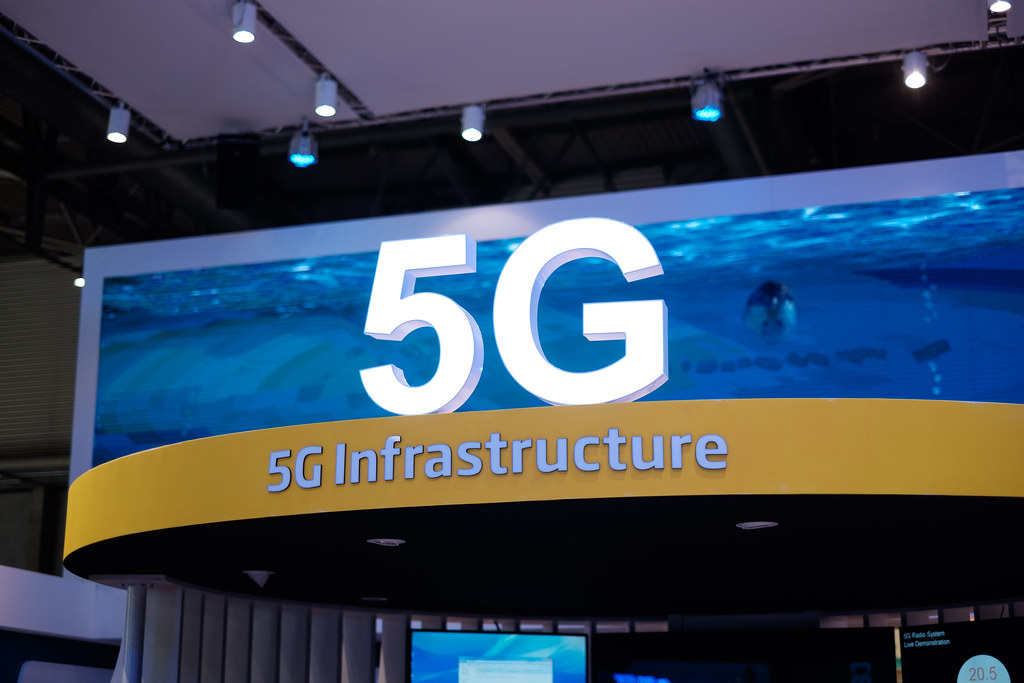How 5g Works? Who Launched 5g and when?
How 5g Network Works?
How 5g Works? Who Launched 5g and when?
Like other cell systems, 5g systems utilize an arrangement
of cell locales that partition their domain into segments and send encoded
information through radio waves. Every cell site must be associated with a
system spine, regardless of whether through a wired or remote backhaul
association.

5g systems will utilize a kind of encoding called OFDM,
which is like the encoding that 4G LTE employments. The air interface will be
intended for much lower dormancy and more noteworthy adaptability than LTE,
however.
5g may likewise transmit information over the unlicensed
frequencies as of now utilized for Wi-Fi, without clashing with existing Wi-Fi
systems. That is like an innovation that every one of the transporters aside
from Sprint are at present propelling, called LAA.
5g systems are considerably more liable to be systems of
little cells, even down to the measure of home switches, than to be gigantic
towers transmitting extraordinary separations. A portion of that is a result of
the idea of the frequencies utilized, yet a considerable measure of that is to
grow organize limit. The more cells you have, the more information you can get
into the system.
So 5g systems should be substantially more astute than past
frameworks, as they're juggling some more, littler cells that can change size
and shape. Be that as it may, even with existing full scale cells, Qualcomm
says 5g will have the capacity to help limit by four times finished current
frameworks by utilizing more extensive data transmissions and propelled
recieving wire advancements.
The objective is to have far higher paces accessible, and
far higher limit per division, at far lower inactivity than 4G. The measures
bodies included are going for 20Gbps velocities and 1ms idleness, and soon
thereafter extremely intriguing things start to happen.
Who Will Launch 5g And When?
AT&T has broadcasted that it will be first with portable
5g when it dispatches a system in 12 urban areas before the current year's
over. While it hasn't given subtle elements, we think this will be
"millimeter wave" 5g, which requires thick systems of cells that
don't achieve exceptionally far (say, around 1,000 feet each), yet convey to a
great degree high speeds.
AT&T's rollout could be hindered by an absence of 5g
telephones accessible before 2019, however. Qualcomm has said that 5g
telephones will be accessible in 2019, yet not before at that point. AT&T
said toward the beginning of February that it would dispatch not with
telephones, but rather with a "puck" that eyewitnesses are expecting
is a versatile hotspot.
Verizon is beginning with a settled 5g home web access
propelling in three to five urban communities before the finish of 2018.
Sacramento will be the principal city. This will utilize home switches with
settled reception apparatuses that Verizon will have the capacity to supply,
getting around the troublesome telephone issue. Probably, this will offer
gigabit web to contend with neighborhood link organizations, yet you won't have
the capacity to tote it around.
5g home web indicates one noteworthy favorable position more
than 4G: gigantic limit. Transporters can't offer intensely valued 4G home web
in light of the fact that there sufficiently isn't limit on 4G cell locales for
the 190GB of month to month use most homes currently anticipate. This could
truly build home web rivalry in the US, where, as indicated by a 2016 FCC
report, 51 percent of Americans just have one choice for 25Mbps or higher home
web access. As far as it matters for its, Verizon let us know there wouldn't be
4G-level information tops on home 5g benefit.
5g home web is additionally significantly less demanding for
bearers to take off than house-by-house fiber optic lines. Instead of
uncovering each road, transporters simply need to introduce fiber optics to a
phone site each couple of squares, and afterward give clients remote modems.
Verizon will take after with a versatile 5g organize in
2019, the transporter has said. Verizon's initial 5g telephone could be the
Moto Z3, which has a 5g add-on guaranteed for right on time one year from now.
T-Mobile is adopting yet another strategy. The organization
is building an across the country 5g arrange on the 600MHz band beginning in
2019, with full national scope by 2020. The low-band system will be
supplemented by millimeter wave in huge urban areas, which is the kind of 5g
AT&T and Verizon are working out.
The speed of a remote system is attached to how much range
you can use for it. Since T-Mobile is just utilizing a normal of 31MHz of range
at 600MHz rather than the many MHz that millimeter wave systems will utilize,
its low-band 5g system will be somewhat quicker than 4G, yet not numerous
gigabits quick. It will in any case have the low idleness and numerous
associations parts of 5g, making it usable for gaming, self-driving autos, and
keen urban communities, for example. In urban communities, the millimeter-wave
system will be super quick.
"Is it accurate to say that we will see normal paces
begin to climb by many megabits every second? Without a doubt," T-Mobile
CTO Neville Ray said. "We would love to see normal paces triple, or move
to 100Mbps, yet that is an excursion that will require some serious energy in
the business."
Dash reported its initial 5g telephone in August, saying an
incorporated 4G/5g Android telephone from LG will go to its system amid the
"principal half of 2019." Sprint's 5g will be on the 2.5gHz band,
which will give it comparable scope to Sprint's current 4G LTE arrange; truth
be told, it will utilize a similar cell locales.
Telephone organization OnePlus has focused on discharging a 5g
telephone in 2019, in spite of the fact that it hasn't said what arrange it
will be for. Up until now, Apple and Samsung haven't made any strong duties to 5g
gadgets.



Post a Comment